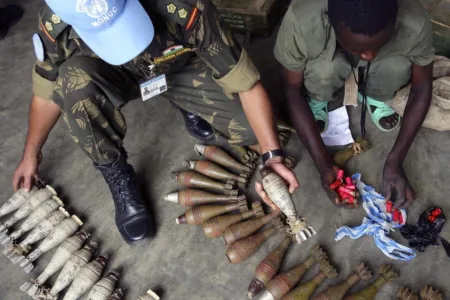Negotiating disarmament and demobilisation in peace processes: what is the state of the evidence?

This report considers the extent to which disarmament, demobilisation and reintegration (DDR) and related concepts are accounted for in peace processes and peace agreements. It focuses on the scale and scope of provisions for disarmament and demobilisation in peace agreements, the nature of their sequencing and inclusion in such agreements, and the types of security mechanisms intended to promote confidence among parties. It finds that key provisions for DDR are present in over half of all comprehensive peace agreements (numbering 37 in total) and fewer than 5% of all related peace accords, protocols and resolutions (numbering 640 in total).
This review does not discern clear patterns of where key concepts are located or distributed in peace agreements. In reviewing negotiating experiences, however, it finds that “disarmament” and “demobilisation” are often relegated to the end of talks and/or left ambiguous in peace agreements themselves. Mediators or parties to a conflict thus seldom regard disarmament and demobilisation as preconditions for negotiations. They are nevertheless central to wider questions of security sector transformation and transitional justice in the aftermath of war.